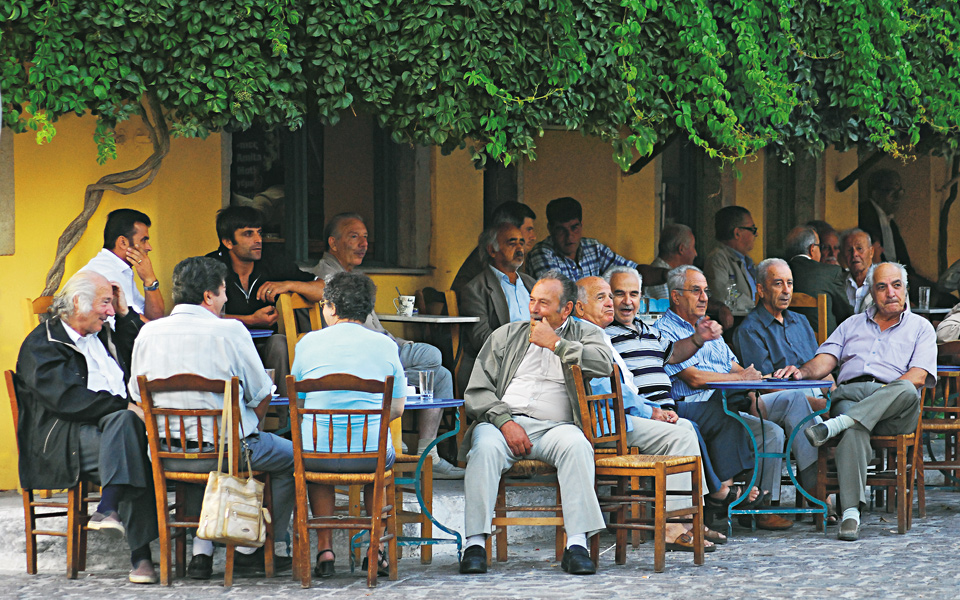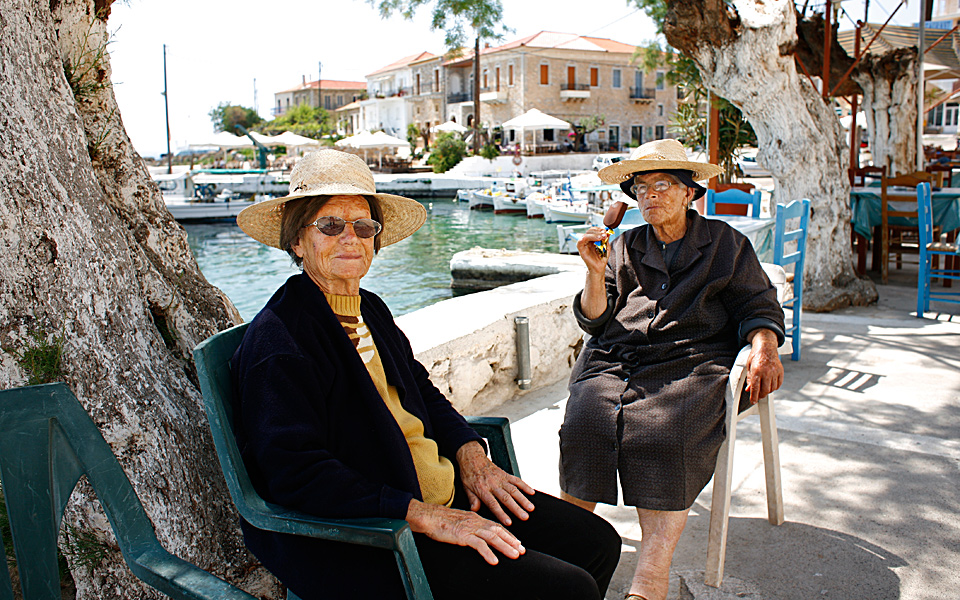The key factors that determine longevity were the original considerations for MEDIS research, a research program that began in 2005 under the umbrella of Harokopio University, aiming to observe the lifestyle, health status and habits, dietary and behavioral traits of island dwellers.
The head researchers, Evangelos Polichronopoulos, (Harvard School of Public Health, MPH ’88) and Demosthenes Panayotakos, professor of Epidemiology and Biostatistics, share the details of the research, some of which has been published in peer-reviewed journals: “We focused on people who were over 65, disease free, particularly without cardiovascular problems and cancer, and excluding mild issues such as elevated blood sugar or pressure, which is the result of old age.” said Panayotakos.
To date about 2,700 people have participated from the islands of Greece and from Malta, the Balearic Islands, Sicily and Sardinia. For comparative reasons, the region of mainland Mani was also included in the study. The proposal envisages extending the research internationally to America, the Bahamas and Australia.
The adoption of the Mediterranean diet, which is high in fish, helps reduce the risk of heart disease. “The simple life, eating in moderation, with variety and balance, the slow pace of everyday life, the midday siesta and physical activity all seem to contribute to longevity,” says Polichronopoulos. Through the study, it also emerged that a very large proportion of the elderly remain without special care for their health problems – several were identified with hypertension and diabetes who followed no treatment at all.
“The simple life, eating in moderation, with variety and balance, the slow pace of everyday life, the midday siesta and physical activity all seem to contribute to longevity”

The problem was even more acute on the smaller islands. “Health care is particularly problematic on the small islands, and this is associated with increased morbidity of elderly people in those areas.” says Panayotakos. For those who are in their 90s he said: “The almost complete absence of smoking is recorded as an important factor. In addition, another key factor seems to be socialization. Those who were over 90 were socially active and living within their extended family. Those who were housebound and constantly watching television had problems such as obesity, diabetes, hypertension and high rates of depression.” he continued.
An interesting feature which emerges from the survey is the negative effect of removing the participants from the traditional way of life and Mediterranean diet to the urbanized areas of large islands, for example Crete or Lesvos, unlike what happens in the islands of Spain and Italy, mainly because of the influence of tourism which has made diets more Westernized. “‘What breakfast do you give tourists?’ we asked. ‘Continental’ they answered us, based on a rather arbitrary interpretation of the needs of their customers than on their actual requirements.” says Panayotakos.
The aim of the study according to Polychronopoulos is “To capitalize on the results and learn from the elderly who live the traditional way of life. The findings vindicate the Mediterranean diet and the teachings of our grandparents to consume everything in moderation.”
Frugal Lifestyle as a general philosophy
Frugality both in the diet and the general way of life, coupled with varied diets as a general philosophy, is perhaps one of the secrets of the longevity of the participants according to the study. 40% of women and 25% of men were obese because of sedentary lifestyles, 4% of women but 25% of men were current smokers, 27% of women and 14% of men had severe symptoms of depression, 69% of women and 58% of men had hypertension, of which 90% were on special medication. 35% of women and 37% of men had elevated fat measurements in their blood, and of these 6 out of 10 were receiving medication, while only half followed a special diet.
23% of women and men had diabetes, of which 5% were on insulin but only 55% followed a specific dietary regimen. A strict adherence to the Mediterranean diet seems to have been lost: only 60% of elderly men and women in the study followed it, while the remaining 40% followed a more Western diet rich in meat and saturated fat, with a low consumption of fruits and vegetables, legumes and cereal. The result was an increased incidence of hypertension, dyslipidemia, obesity and diabetes.
Originally published in Kathimerini newspaper
“Frugality both in the diet and the general way of life, coupled with varied diets as a general philosophy, is perhaps one of the secrets of the longevity”










